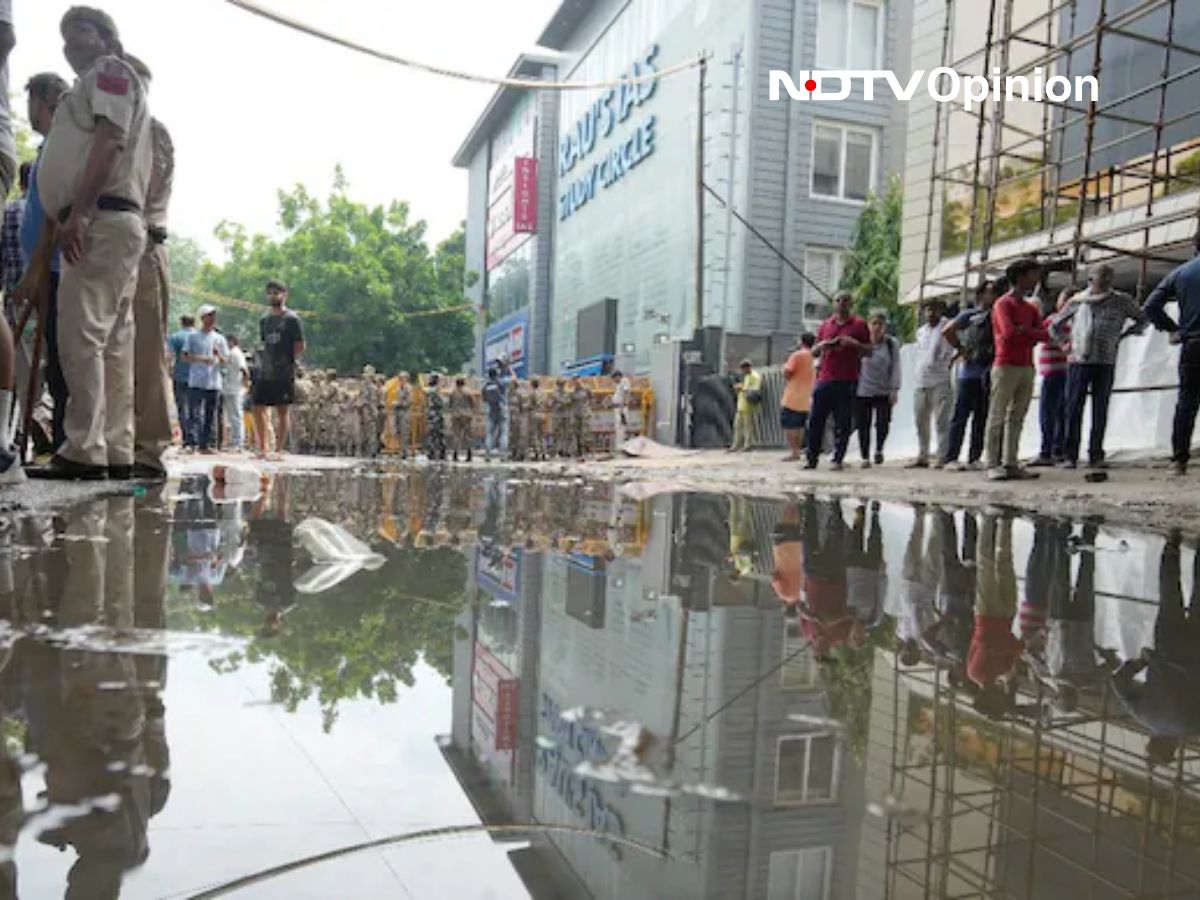
Three young bright minds were lost in a coaching institute's basement in India's capital city, New Delhi, on July 27. Shreya Yadav of Uttar Pradesh, Tania Soni from Telangana, and Navin Delvin from Kerala died after the basement of the building housing Rau's IAS Study Circle in Old Rajinder Nagar was flooded. The police have arrested five people, including the owner and coordinator of the coaching centre, and booked them for various charges.
In typical bureaucratic fashion, the Municipal Corporation of Delhi (MCD) was quick to seal the basements of many other coaching institutes in the area right after this tragic incident; earth movers were pressed into service at Old Rajinder Nagar to raze illegal portions of institutes. But no action will bring back the dead students to life. Just days before the basement drowning, a 26-year-old man had died by electrocution when he touched an iron gate electrified by a naked wire.
The dreams of all four aspiring civil servants came to naught due to callous, indifferent, apathetic, perpetually under-prepared civic agencies. The two incidents amount to criminal negligence. They also bring to the fore the constant political wrangling between the ruling Aam Aadmi Party (AAP) and the Lieutenant-Governor (L-G) of Delhi.
Failure On All Fronts
Local authorities' inaction at checking the unregulated growth of coaching centres, overcrowded with students operating in residential buildings, and flouting safety norms, is a gross administrative failure.
Old Rajinder Nagar and Mukherjee Nagar, the hubs of civil service coaching in Delhi, are not new to tragic incidents. In June 2023, as many as 61 students in Mukherjee Nagar were injured while trying to escape a four-storey commercial building as a fire on the ground floor engulfed the structure. The Delhi High Court had back then taken suo motu cognisance of the fire and asked the authorities to examine the safety status of all such institutes. The court instructed the Delhi Fire Service Department to examine the fire safety certificate of all coaching centres in the city. Likewise, it had asked the MCD to look into the sanctioned building plans of such establishments.
In the latest case, investigations have revealed that the basement, misrepresented as a parking and storage area, was being illegally used as a library by the coaching institute, violating building and fire department regulations.
MCD building bylaws specify the activities permitted in basements. Running a coaching centre or a library are not among them. "The officials and staff get away with their errant behaviour as they fear none. They know that after a while when the issue is no longer grabbing the headlines, nothing will change and they will get away with criminal acts. It is not an episodic but a systemic problem," says Ash Narain Roy, Director, Institute of Social Sciences, Delhi. "Teaching shops are flourishing under the worst conditions because of the rot in the education system. It is essentially a governance problem where accountability is missing. Citizens suffer as officials dodge their responsibility," he adds, emphasising the rot in the multi-crore but unregulated coaching industry in India.
A Stringent Law
Lakhs of students around the country are compelled to study in unsafe conditions in such institutes, pointing to the need for a law that can enable regulation of the industry. Mere guidelines, like those issued earlier this year, are not enough. In any case, the guidelines could achieve little as they were not legally binding. Because education is a concurrent subject, the central and state governments need to amend their laws and make new rules.
Categorising or recognising coaching centres as part of the formal education system will mean legitimising the industry and its business, which will definitely be counter-productive. The Centre and the state governments thus have a huge responsibility to build awareness, improve regular schooling and college education and reduce dependency on coaching.
No End To The AAP-LG Wrangling
Since coming to power, the AAP has been engaged in a constant struggle with the L-G's office over one issue or the other. The conflicts have crippled Delhi's development for the past eight years, with three different L-Gs and several court orders failing to settle the disputes.
"The daily tug of war between the AAP government and the L-G is having a demoralising effect on all institutions. Departments and bodies like MCD dealing with citizens are unaccountable and unresponsive at the best of times," says Roy.
The functioning of our urban local bodies is such that the buck doesn't stop with any one stakeholder. After each serious incident, lower-level officials are punished, arrests made and cases go on for years. Yet, no accountability is fixed to prevent the next accident. Lives will be lost, citizens will continue to suffer till the Union and state governments find a lasting solution to revamp India's dysfunctional urban local bodies.
(Bharti Mishra Nath is Contributing Editor, NDTV)
Disclaimer: These are the personal opinions of the author


